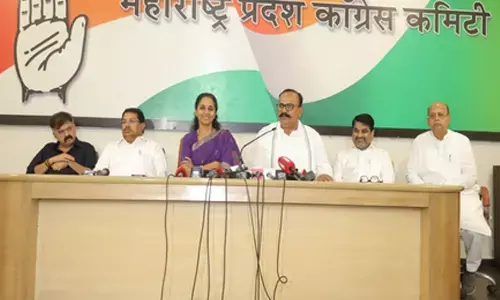Bring e-commerce laws to checkmate manipulative moves of 'big' players

Bring e-commerce laws to checkmate manipulative moves of ‘big’ players
Protection of consumers’ interests should be the focal point
Contrary to initial perceptions of it being a short-term phenomenon, online marketplace has become ingrained in the Indian consumers' psyche. The Covid pandemic and the subsequent lockdown forced a big shift from brick-and-mortar shops to ecommerce platforms. This was presumed to be a passing phase as the lure of physical retail shopping had a magnetic appeal that was far more explicit to online purchases.
However, to the surprise of market observers, who were expecting consumers to return in droves to kirana stores and luxury malls in 2022, it appears that online shopping, which continues to hold sway given the high growth rate, is here to stay. According to media reports, these are the findings of several market research agencies, which discovered that despite the sales recovery recorded by retail chains, online purchases continued at the same level as during the two Covid years. In fact, sales of technology products like smartphones were actually higher through online channels in 2022 compared to the two previous years.
These studies confirm projections made by other agencies earlier, notably by Bain and Accel, that there would be phenomenal growth in the country's digital marketplace over the next decade. Their study on the growth of digital bazaars predicted that the growth of the marketplace sector will more than triple over the next five years to reach 350 billion dollars in gross merchandise value.
It expects them to create 500 to 600 billion dollars in enterprise value and contribute over five per cent to the country's GDP by 2027. It also forecast that these will enable more than 15 million MSMEs to grow their businesses online and create seven million jobs. Given the fast pace at which ecommerce is growing, it is time the government to finalises proposals for a legal framework for this sector. A draft legislation that is being discussed for several years now, is still in the process of inter-ministerial consultations. Some of the proposals for regulating the sector have been incorporated as rules under the Consumer Protection Act but these are not comprehensive and need to be reviewed to make them more effective.
For instance, the caveat on flash sales would actually be harming consumers' right to buy goods as cheaply as possible online. Evidently, the provision has been included to protect the interests of the physical retail lobby rather than keeping the consumers' interests in mind. Other regulations such as not allowing online platforms to utilise their own inventories or allow related entities to sell products are required to prevent misuse by marketplace promoters. At the same time, this can lead to some anomalies as it has been pointed out that it will prevent companies like Starbucks from selling on the Tatas site owing to their collaboration. Some fine-tuning of the policy is required to make it more pragmatic. Indian policymakers would do well to have a look at the regulations being adopted by the European Union, which has taken firm measures to ensure that online market places are prevented from exploiting consumers. It has brought into force a legislation known as the Digital Markets Act. It has a linked regulation, the Digital Services Act. These two laws will determine the way in which large online platforms operate and ensure fair competition and equity for consumers.
Some of the provisions under the DMA include banning large platforms from ranking their own products or services in a more favourable manner compared to those of third parties.
Some Big Tech companies have been accused of doing so on their online marketplaces. Moreover, consumers' activity cannot be tracked across the web for targeted advertising without explicit consent. The rules also prevent imposition of pre-installed software on computers or phones such as browsers or music applications. Consumers will instead have to be allowed to download the app store of their choice on their devices. They must also be allowed to install a default search engine and web browser of voice assistant of their choice. In yet another significant change to existing systems, the new DMA rules will prevent the tech giants from using the data generated on their site by business customers to better compete with them. It is clear that these are the model rules that need to be examined closely by Indian policymakers while formulating a new ecommerce law. The EU has, in fact, become a model for the rest of the world in this respect as many other countries are reported to be scrutinising the DMA in order to prepare similar regulations. So the rapid rise of online shopping in India needs to be carefully monitored to ensure that Big Tech is not able to exploit consumers in the coming years. It is time to lay down rules so that consumers are given a fair choice both in the physical retail space as well as in the online marketplaces.
The old principle of 'Caveat Emptor' or 'Buyer Beware' needs to be replaced with 'Caveat Venditor' or 'Seller Beware' so that consumers are given full protection in this country.











